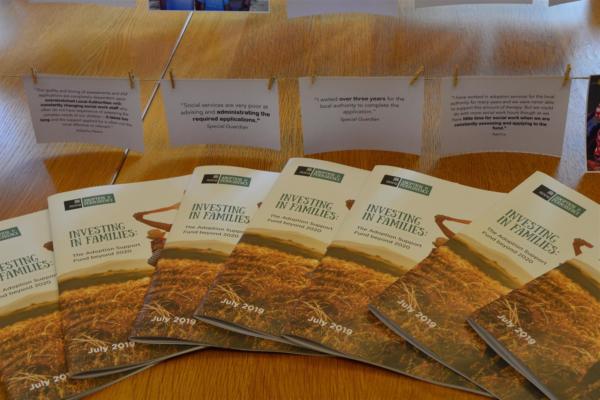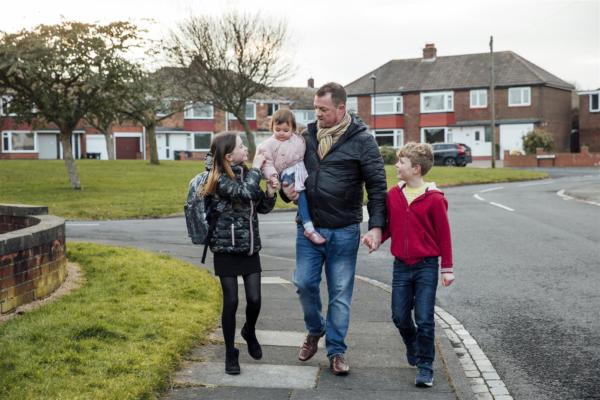
Lack of parental leave entitlements for self-employed adopters is discouraging further adoptions, APPG survey finds.
Parliamentarians, sector leaders and members of the adoption community met in Westminster on Wednesday to reconstitute the All-Party Parliamentary Group on Adoption and Permanence and to discuss the findings of a recent survey of self-employed adopters and
prospective adopters.
The survey, led by the APPG secretariat Adoption UK and Home for Good, revealed that the Government’s decision not to offer self-employed adopters an equivalent to the Statutory Maternity Allowance as given to self-employed birth parents was potentially putting off prospective adopters. 63% of those responding said the lack of paid leave had played a major role in them not yet commencing the assessment process; whilst 46% of established adopters said that a lack of paid leave played either a large or a fairly significant role in their decision to not adopt again in future.
This is likely to concern the Government who have committed to improve the recruitment of adopters to help reduce the amount of time children wait to find the best family for them, where adoption is the best option.
Particularly worrying, some adopters responding to the survey reported a lack of paid parental leave was impacting their ability to consider adopting their child’s biological sibling. One adopter said: “We have already been approached to adopt another sibling and had to say no because there was no financial package available to help with nursery.”
The Department for Business, Enterprise and Industrial Strategy (BEIS) – responsible for this policy – have insisted “The Government recognises that it is crucial to the success of an adoption placement that an adopter takes time off work to care for and bond with their child” but instead of ensuring this right is extended to self-employed adopters, the Department points to statutory guidance which suggests self-employed adopters apply to their local authority for a discretionary, means-tested payment.
However, when asked if they had been advised by their social worker to apply for a discretionary payment, 90% of established adopters responding to the survey said they had not. The low level of support available means self-employed adopters are often forced to work during the early months of their child’s placement, unlike employed adopters.
The Group yesterday heard moving accounts from two adopters struggling with the impact of the Government’s policy. Chair of the APPGAP, Rachael Maskell MP said: “The results of our survey shed light on the concerning impact the lack of paid parental leave is having on hundreds of families a year. It’s simply not good enough for government departments to pass the buck between them. I will be writing to relevant ministers to urge action to stop a legal oversight getting in the way of finding the right families for children who need them.”
For more information, please contact the secretariat of the group at [email protected]. The secretariat is provided jointly by charities Adoption UK and Home for Good.











